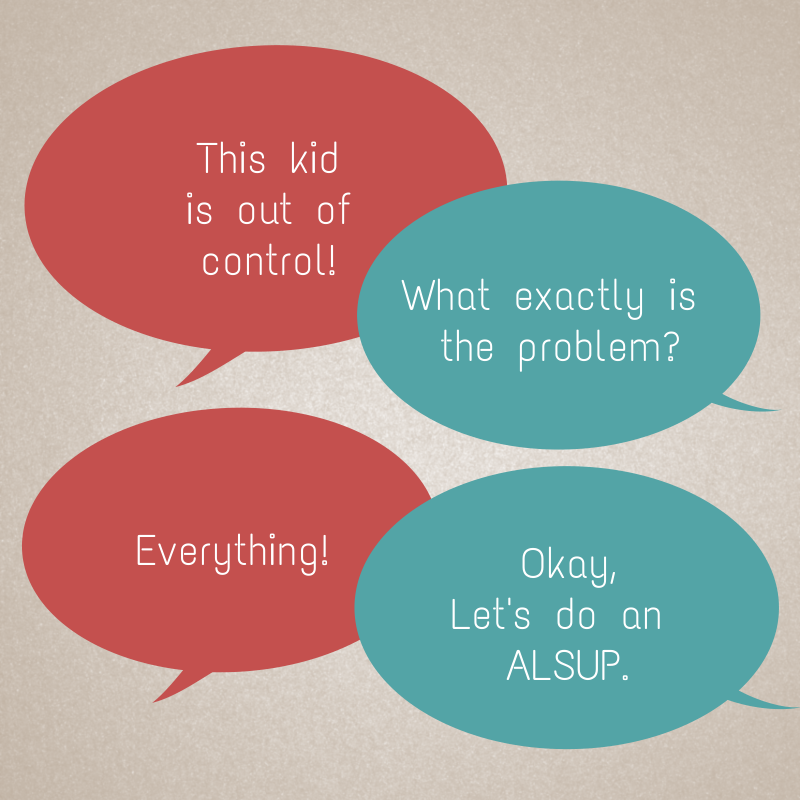
by schoolcounselingbyheart | Feb 22, 2014 | behavior, individual counseling
 Raise your hand if you’ve ever worked with a kid whose behavior was complicated. Yeah, I thought so. Now, raise your hand if you’ve ever had staff describe behaviors using terms like “disrespectful,” “rude,” “unfocused,” or any other vague descriptors and then wanted you to be able to fix everything quickly. Raise your hand one more time if you’ve ever felt overwhelmed and didn’t know where to begin! Join the club! We’ve all been there. I wish I had a nickel for every time I’ve had a conversation like this: (more…)
Raise your hand if you’ve ever worked with a kid whose behavior was complicated. Yeah, I thought so. Now, raise your hand if you’ve ever had staff describe behaviors using terms like “disrespectful,” “rude,” “unfocused,” or any other vague descriptors and then wanted you to be able to fix everything quickly. Raise your hand one more time if you’ve ever felt overwhelmed and didn’t know where to begin! Join the club! We’ve all been there. I wish I had a nickel for every time I’ve had a conversation like this: (more…)

by schoolcounselingbyheart | Dec 1, 2013 | group counseling, individual counseling, self-esteem
 There’s a new resource in my office, a favorite of my fifth grade girls. It’s BYOU “Be Your Own You” Magazine, which aims to encourage healthy self-esteem in girls. The bimonthly issue of BYOU focuses on a theme: bullying prevention, positive friendships, loving yourself, happiness, etc. BYOU is a great resource – you can use the magazines themselves in group and individual settings, or as inspiration for classroom, group, and individual activities for girls and boys. (more…)
There’s a new resource in my office, a favorite of my fifth grade girls. It’s BYOU “Be Your Own You” Magazine, which aims to encourage healthy self-esteem in girls. The bimonthly issue of BYOU focuses on a theme: bullying prevention, positive friendships, loving yourself, happiness, etc. BYOU is a great resource – you can use the magazines themselves in group and individual settings, or as inspiration for classroom, group, and individual activities for girls and boys. (more…)
by schoolcounselingbyheart | Feb 2, 2013 | classroom lessons, Common Core, group counseling, individual counseling
 You work hard every day to help kids communicate clearly, solve problems, collaborate, gain independence, understand others’ perspectives and cultures, and become college and career ready. You facilitate discussion in one-on-one, small group, and whole-class settings. Depending on the grade levels you cover, it’s likely that you read books with kids, help students prepare for college or job interviews (or disciplinary hearings!), help them interpret assessments or other data to make decisions, and provide guidance about writing application essays. So guess what! You’re probably already on your way to addressing the Common Core State Standards. Here’s some information to help you better understand what the Common Core standards are all about, and how you can integrate them into your practice to improve student learning and build system-wide support for your school counseling program. (more…)
You work hard every day to help kids communicate clearly, solve problems, collaborate, gain independence, understand others’ perspectives and cultures, and become college and career ready. You facilitate discussion in one-on-one, small group, and whole-class settings. Depending on the grade levels you cover, it’s likely that you read books with kids, help students prepare for college or job interviews (or disciplinary hearings!), help them interpret assessments or other data to make decisions, and provide guidance about writing application essays. So guess what! You’re probably already on your way to addressing the Common Core State Standards. Here’s some information to help you better understand what the Common Core standards are all about, and how you can integrate them into your practice to improve student learning and build system-wide support for your school counseling program. (more…)
by schoolcounselingbyheart | Jan 27, 2013 | individual counseling
 I never know what I’m going to find in the mailbox outside my office door. It could be a request for help, a thank-you note, a picture, a detailed description of what went on at recess (can you say third grade girls?), a mushed up cupcake, or one of the flurry of notes I get about nothing much once first graders discover how exciting it is to deposit their missives in my mailbox. “Can I help you with something?” I ask. Often the answer is, “No. I’m just writing you a note.” And sometimes I get something like this:
I never know what I’m going to find in the mailbox outside my office door. It could be a request for help, a thank-you note, a picture, a detailed description of what went on at recess (can you say third grade girls?), a mushed up cupcake, or one of the flurry of notes I get about nothing much once first graders discover how exciting it is to deposit their missives in my mailbox. “Can I help you with something?” I ask. Often the answer is, “No. I’m just writing you a note.” And sometimes I get something like this:
F this scool. Get me out of hear know. (more…)
by schoolcounselingbyheart | Sep 5, 2012 | abuse, classroom lessons, individual counseling, personal safety
 In the days after a student discloses abuse, I always touch base to see how things are going. I tell them (again) how brave they were and how proud of them I am. Unfortunately, not all of these stories have happy endings, but in many cases, telling helps kids find safety, and they feel protected, empowered, and proud of themselves. Some of the most profoundly moving moments of my career as a school counselor have come when kids have told me about how telling made such a difference in how they are feeling about their situations and about themselves. Here is some of what they have told me (and how I plan to use their words to help other kids too): (more…)
In the days after a student discloses abuse, I always touch base to see how things are going. I tell them (again) how brave they were and how proud of them I am. Unfortunately, not all of these stories have happy endings, but in many cases, telling helps kids find safety, and they feel protected, empowered, and proud of themselves. Some of the most profoundly moving moments of my career as a school counselor have come when kids have told me about how telling made such a difference in how they are feeling about their situations and about themselves. Here is some of what they have told me (and how I plan to use their words to help other kids too): (more…)
by schoolcounselingbyheart | Aug 26, 2012 | abuse, children's literature, classroom lessons, individual counseling, personal safety
 When thinking about perpetrators of child sexual abuse, many people picture an image of a creepy stranger. Parents and schools generally do a pretty good job of teaching their kids about “stranger danger.” But this is not where most of the danger lies. The vast majority of sexual abusers are known to the children they target, so it is incumbent upon us to teach kids not only how to respond when an uncomfortable or dangerous situation arises, but also how to recognize when danger is approaching. (more…)
When thinking about perpetrators of child sexual abuse, many people picture an image of a creepy stranger. Parents and schools generally do a pretty good job of teaching their kids about “stranger danger.” But this is not where most of the danger lies. The vast majority of sexual abusers are known to the children they target, so it is incumbent upon us to teach kids not only how to respond when an uncomfortable or dangerous situation arises, but also how to recognize when danger is approaching. (more…)

 Raise your hand if you’ve ever worked with a kid whose behavior was complicated. Yeah, I thought so. Now, raise your hand if you’ve ever had staff describe behaviors using terms like “disrespectful,” “rude,” “unfocused,” or any other vague descriptors and then wanted you to be able to fix everything quickly. Raise your hand one more time if you’ve ever felt overwhelmed and didn’t know where to begin! Join the club! We’ve all been there. I wish I had a nickel for every time I’ve had a conversation like this: (more…)
Raise your hand if you’ve ever worked with a kid whose behavior was complicated. Yeah, I thought so. Now, raise your hand if you’ve ever had staff describe behaviors using terms like “disrespectful,” “rude,” “unfocused,” or any other vague descriptors and then wanted you to be able to fix everything quickly. Raise your hand one more time if you’ve ever felt overwhelmed and didn’t know where to begin! Join the club! We’ve all been there. I wish I had a nickel for every time I’ve had a conversation like this: (more…)





